I was studying geography but didn’t really like it, so I dropped out of school. I lived in Damascus with my parents and 7 brothers. Of course, I needed to find another education but I didn’t know which one. So, I decided to volunteer with the police. We had a wonderful life in Damascus. It was 2011 and all was good. Until later that year. I was volunteering with the police for four months when things changed. Protests against Bashar al-Assad and his government began. The war in Syria had started.
I saw how the police oppressed people, I even saw them killing children in front of me and how they separated families. When they killed four of my cousins, we decided to flee. My family fled to Lebanon and Quneitra in the South of Syria. I stayed in Damascus because I was hiding from the police and joined in demonstrations against the government. For two and a half years I was hiding in the South of Damascus. It was now when they started to bomb this area.
But I wasn’t afraid. I was alone, my family was safe so they couldn’t get to me. There were many fights but we didn’t have food, nor hygiene or water. We had nothing. For two and a half years I was eating leaves. We boiled tree leaves and ate them. There are no words describing this period.
For at least one and a half year I didn’t taste the hard crush of bread or the sweetness of sugar. People died of hunger during these times, I saw this on a daily basis. But I was alone, my family fled and I wasn’t married. So, I had nothing to fear but my own life. But it didn’t matter I felt numb. Death was all around me, it makes people feel numb. I was about 19 during this time.

Getting out of Damascus and into Greece
In 2014 me and some friends decided to get out of Damascus to a safe place. We left Damascus at nightfall and we kept walking for twenty days during the night and were hiding during the day. Our feet were hurting but we had to continue. We got to Quneitra which was not yet controlled by the regime of Assad.
Quneitra was where I felt safe and where I met my wife. She worked in a small store and we fell in love instantly. Not long after we married (in 2015), we got two beautiful children. The Syria’s southwestern Quneitra province includes the Syrian Golan Heights, on the border of the territory held by Israel. We had a beautiful time over here, until 2018. Disaster struck again. It was then that Syrian rebels laid down their weapons and started evacuating their positions near the Golan Heights, paving the way for President Bashar Assad’s forces to retake their positions along the Israeli frontier for the first time since 2011. Buses took us to the northwest Idlib province, where we were living among more than one million other Syrians displaced by the civil war.
We went to Afrin and stayed there for a while, but it wasn’t safe there either. So, we decided to go to Europe. First, we had to get into Turkey which was very difficult.
A couple of times the Turkish army caught us. They isolated the women and children on one side and the men on the other side and out of nowhere started hitting us with shoes and sticks. We felt so horrible, like we weren’t welcome anywhere, we didn’t belong anywhere. As we were tired of the beatings by the Turkish army we decided to hide. For a month we were hiding from the army, we were afraid they would take us back to Idlib. Of course I couldn’t go back, if the police caught me in Syria they would torture me as I ran away from volunteering with the police.
Luckily, we weren’t hiding alone. We were with some friends who also wanted to reach Europe for safety. During the nights we walked, sometimes we hitchhiked to Izmir. In Izmir another friend got us into contact with a smuggler. There was no other way to reach Greece, so we took the chance. He promised us to get us to Lesvos, however it wasn’t that easy. It took us three attempts before we finally reached the island, and Europe. The first two attempts the motor of the boat stopped working. We had to row ourselves back to Turkey. The third time was easy, in 1,5 hours we arrived on Lesvos. Here we went in quarantine for 9 days before we arrived in Moria refugee camp on the 15th of June 2020.
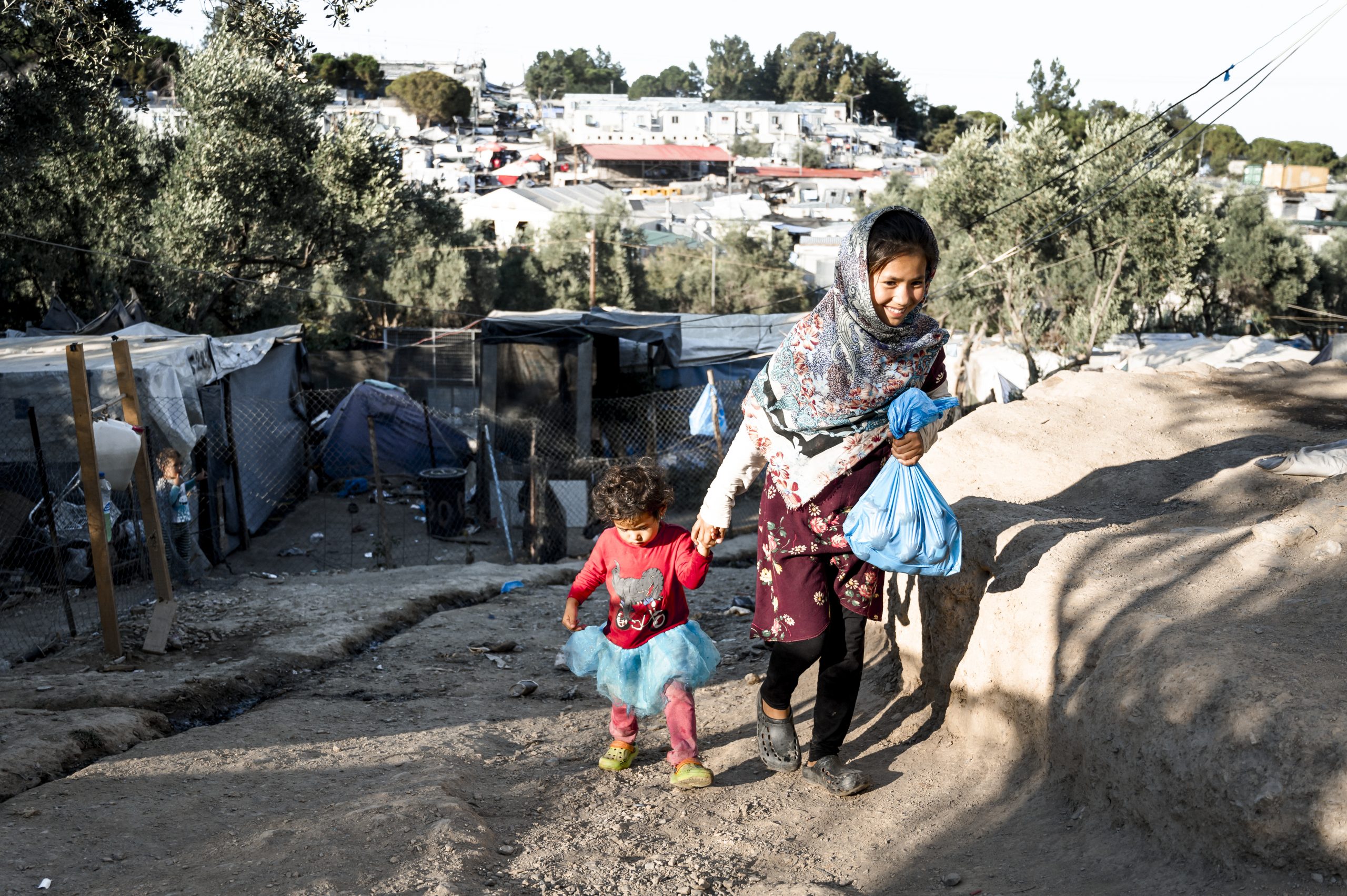

Arrival in Moria Refugee camp on Lesvos
When we arrived at Moria they took our papers and recorded our data. There was no place inside the camp anymore so we had to buy our own tent, which we did. I bought a tent for 100 Euro’s to live in. The situation was horrible, lots of chaos, worn tents, and it was overcrowded. There wasn’t enough food and we had to stand in lines for hours to get ourselves som. We were eating nothing but bread, tomatoes and drank water. And if we were ill or injured we had to wait for five hours to see a doctor. And that is not all. There was a lot of robbery, fights and sometimes even murder in the camp. Everything was bad in this camp, in the worst sense of the word.
The asylum interview
Within five days I had an interview to request asylum in Europe. However, the night before my interview someone got murdered inside the camp. So, when I arrived at the office to have my interview, I found lots of African people protesting to shut down the camp because of the person who was killed.
When I entered the centre, they told me that maybe it was better to come back another time. But, it takes long to arrange an asylum interview with the asylum officers so I decided to continue. It started. They told me my rights and the interpreter told me that we would be talking about Turkey. Not about Syria and what happened there, but about Turkey. It is the first country I arrived after fleeing from Syria, so it’s the first country of asylum and therefore important.
They turned on the voice recorder and the interrogation started. The interrogator asked me: “When did you arrive in Turkey? Where did you stay in Turkey? and why didn’t you stay in Turkey?” I told him my whole story. I gave them the date of arrival in Turkey and arrival in Greece, I told him about hiding for a month, and also what the Turkish army was doing to us. The beatings, the humiliation. I told him that Turkey is exploiting Syrians and how they use the refugee crisis to put pressure on Europe. I told them about stories I heard, about Turkish people using Syrians as mercenaries to fight against the Kurdish people.
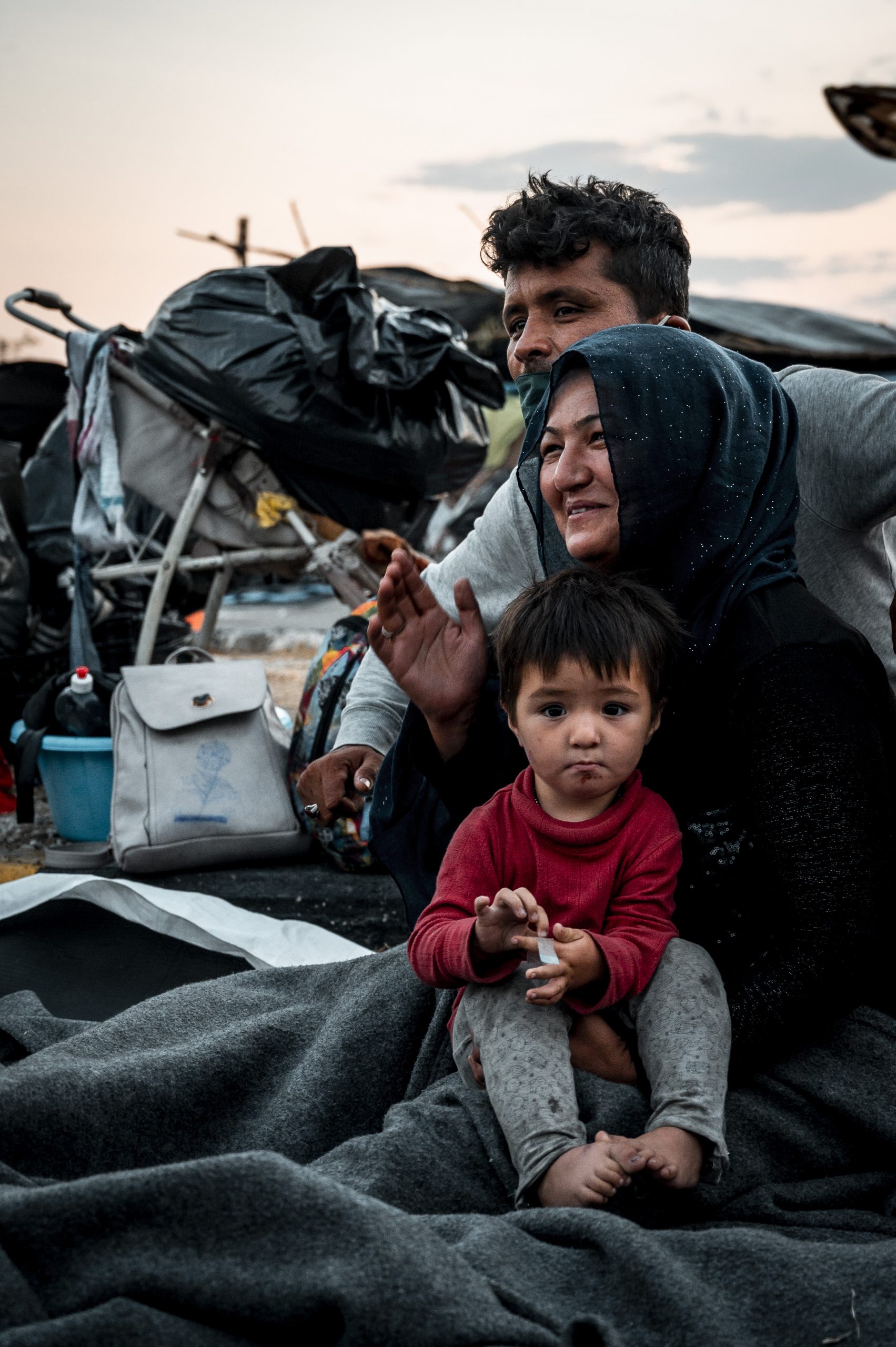
I also told the story about Syrians who sell their organs to the black market to get money to eat and drink, and to provide for their families, because they have no money. There is a lot going on in Turkey, from gangs to smugglers. Human trafficking, child prostitution and torture. Turkey is not a safe place for me, my wife and my young daughters.
That was all they wanted to know from me. They didn’t want to know about my family, about why we fled Syria and about the illness of my daughter. It was so strange to me, I felt really bad, I knew they were going to refuse my asylum request. People already told me that they always refuse the first time you request asylum. And indeed, soon after the interview they gave us an asylum refusal. They said that I should’ve stayed in Turkey, that it was the first country sought refuge and that Europe has a deal with Turkey to keep refugees there. We pay the price for this dispute between Turkey and Europe.

The new refugee camp on Lesvos
After the refusal we continued to stay in Moria refugee camp and applied for another interview. We had nothing but had to make the best of it. The horrible living conditions continued. There were stabbings with knives daily, looting and robbery, there wasn’t any good and safe housing, not enough food, no clothes, not even a bathroom. There was always a queue for the toilets and for my wife and daughters it wasn’t safe to go alone. I couldn’t believe this was the Europe I fled to, the Europe I hoped will give us a decent life and start a new one far away from war, persecution and fear. We wanted to establish a future for our children but this was where we ended up.
We were waiting for the second asylum interview, but were afraid as well. After a series of negative decisions to the asylum claim and appeal, our status in Greece will not be legal. They will take our asylum seeker card and we will not have access to accommodation and cash assistance. The police can even detain us if they stop us. Not that we need financial assistance, we don’t want financial help, we don’t want free homes. We want papers so we can move freely like others. We will work so we can rent homes, feed our children the food they love and pay for the school fees. We ran away from home to get safety and freedom. But we didn’t get this.
And then the camp burned to the ground. In Syria I slept on the road and now again we slept on the road. But this is Europe! This is where we should’ve been safe and taken care of. After a week we could finally take shelter in the new camp. Of course, we were afraid what the camp would be like. It is located on an army shooting ground, we found munition. Besides, there was no place to hide for the cold wind, storms and rain. We used to call this new camp ‘hell’, but actually it is not. Yes, we don’t have showers yet, there are flooding’s even after little rain and the tents are cold in the nights. They also give us food only once per day. But, there is no looting and there are no fights. It feels better than Moria Refugee Camp.
The tents in the new camp do not protect us from the heat of the sun or the cold of the night and the rain became a curse. Our situation is horrible and often I feel desperate. I cannot sleep very well, I have nightmares, I feel the burden of taking care of my children. We pay the price for our governments. I apologize to my children because I brought them here. I feel the pressure of fighting for them but sometimes I feel hopeless. If Europe would care about us they wouldn’t let us sleep on the streets without so much as a blanket, Europe wouldn’t let us live in these dire circumstances. Instead Europe would help us and not send us back to Turkey.

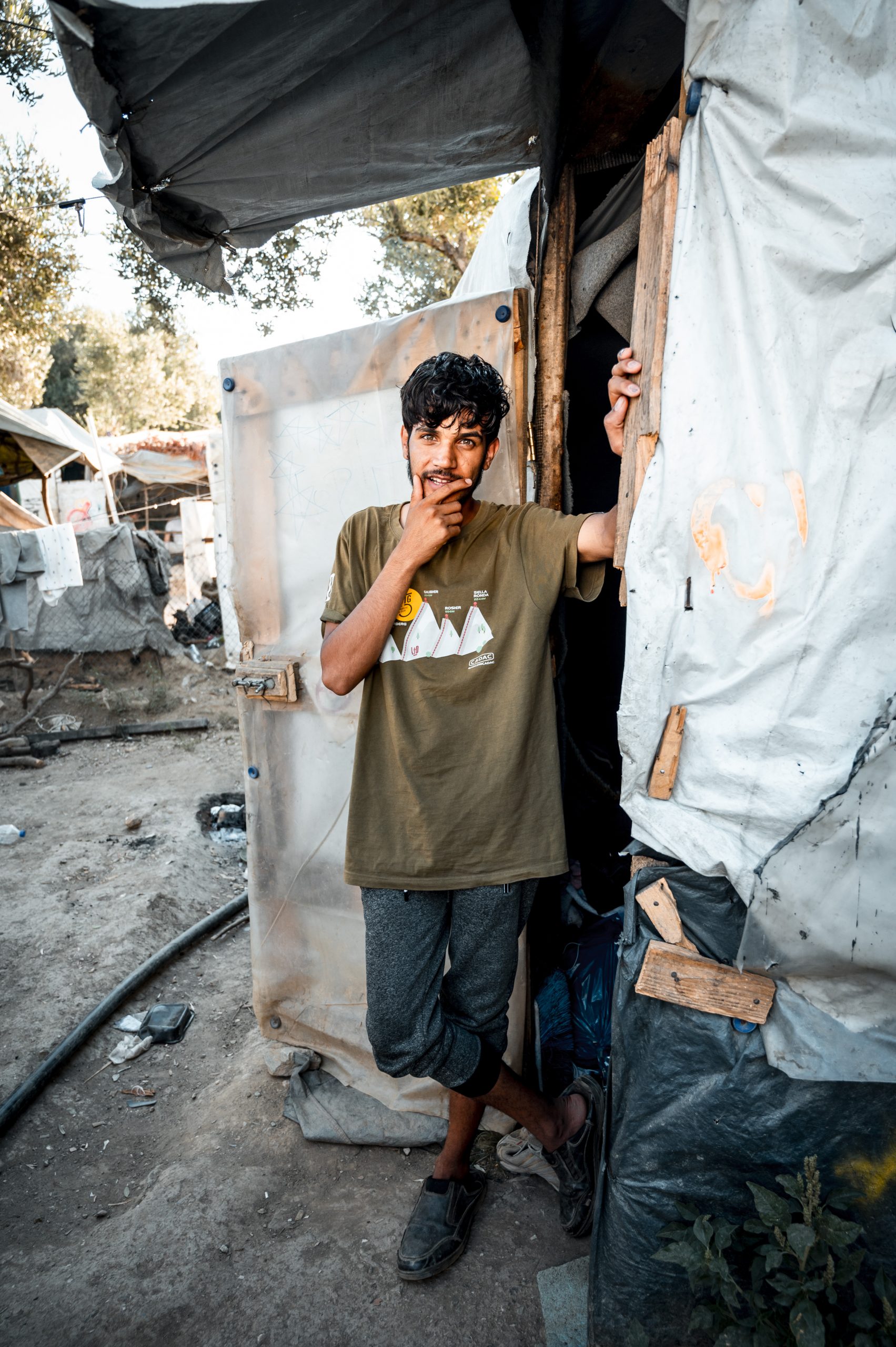


Behind the story
What you have read is a true story by someone who is living on Lesvos waiting for his second asylum request.
It is his story, however, many parts of it apply to almost everyone living on Lesvos. Of course, home countries and details differ. This is what the people endure, on the road to freedom while searching for peace.
*Names are left out to protect the people and not interfere with the asylum request in a negative way.
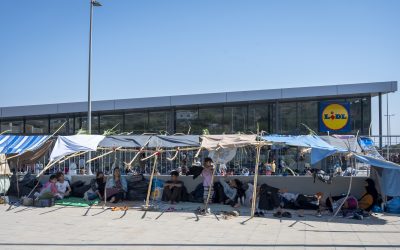
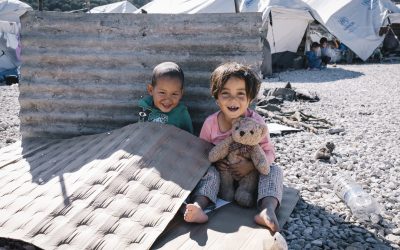
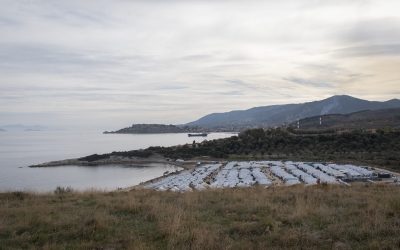
0 Comments